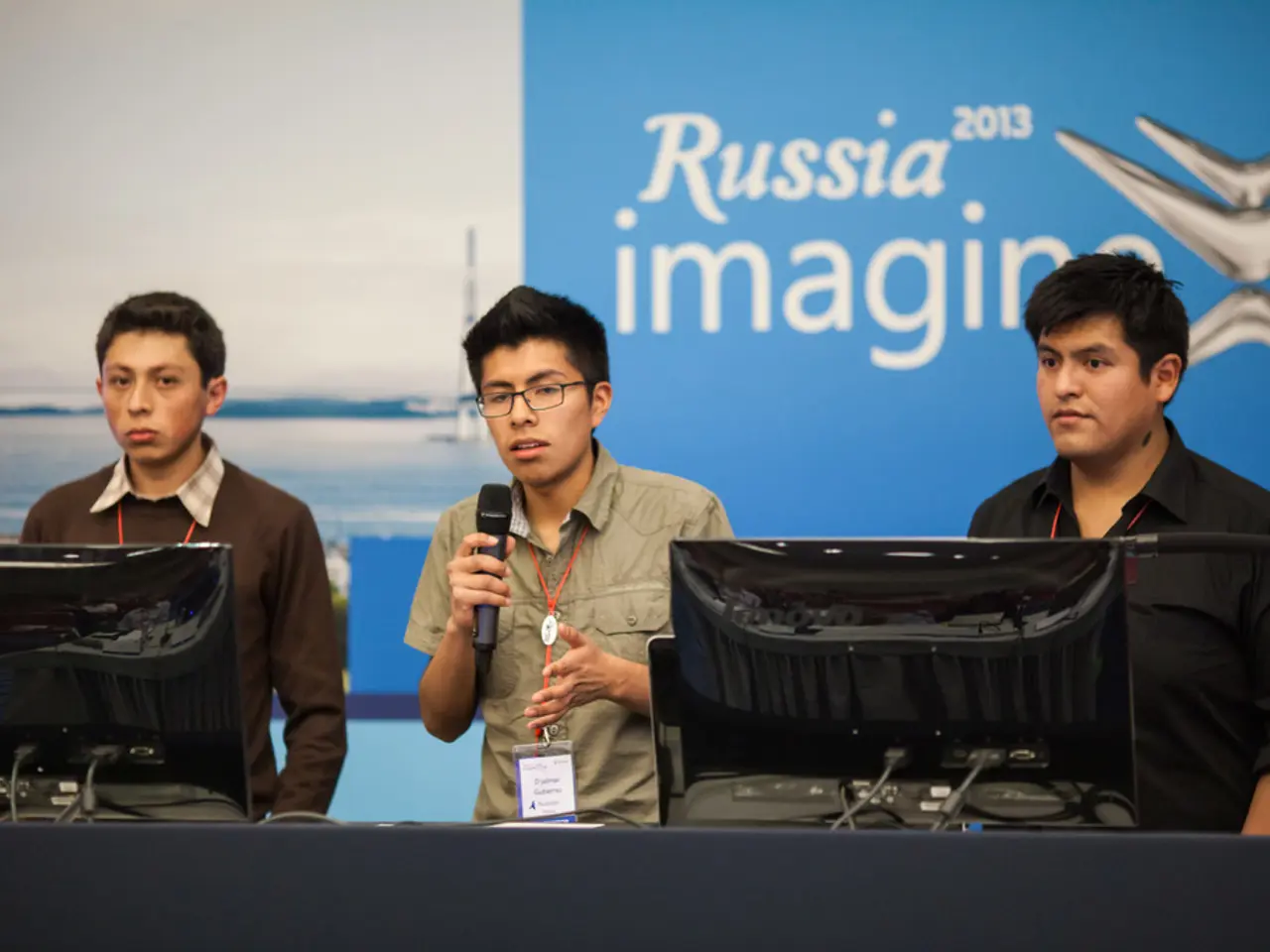AI roles in ethical context observe an increase, yet development remains relatively sluggish
In the rapidly evolving world of Artificial Intelligence (AI), the concept of Responsible AI has gained significant attention. A recent analysis of job postings across various countries reveals that corporate image, branding, and organizational culture may play a more substantial role in shaping the mention of Responsible AI than regulation alone.
Data from Indeed shows that despite stricter AI regulations in countries such as those under the EU AI Act, the primary driver behind the rise in mentions of "responsible AI" in job ads is companies' desire to enhance their public image and brand value, rather than complying with policy mandates. This correlation between regulation strength and responsible AI job mentions is weak, indicating that other factors dominate.
The sector and occupation also influence the prevalence of Responsible AI terminology. The most significant mentions are in human-centered sectors like legal, education, mathematics, and research & development. Tech companies, while discussing AI broadly, might not emphasize responsibility in job ads as much. This suggests that the type of work and its inherent ethical or social implications spur more adoption in job postings.
Resistance to AI adoption often comes from employees fearing job displacement or diminished professional skills, which can limit the embrace of responsible AI practices. Effective adoption requires addressing these concerns through transparent communication and training. Without readiness, willingness, and ability among staff, efforts to embed Responsible AI in roles can fail despite regulations.
Internally, AI teams must focus on delivering competent, trustworthy, and empathetic AI systems that meet user needs to reach the adoption threshold. This user-centered responsibility plays a critical role in successful integration of Responsible AI considerations in job roles and product development.
The adoption of Responsible AI in job descriptions across different countries is a global trend. Occupations with high levels of direct human interaction, such as Arts & Entertainment (4.5%), Architecture (4.1%), and Legal (3.5%), are most likely to reference Responsible AI. On the other hand, tech-heavy roles like Software Development and Mathematics, while highly AI-intensive, are less likely to explicitly mention Responsible AI.
Mentions of Responsible AI in job postings have increased from practically zero in 2019 to around 1% of AI job postings today. The Netherlands, United Kingdom, and Canada have the highest percentage of job postings related to ethical AI hiring. Despite mounting policy efforts and international scrutiny, the presence of Responsible AI in job ads appears to be more due to corporate positioning than government mandates.
As AI adoption accelerates, and public trust on the line, the stakes for embedding ethical considerations in hiring are only growing. Whether the mentions of Responsible AI in job postings reflect genuine investment or corporate image-building remains to be seen. However, it is clear that companies are incorporating responsible AI commitments selectively, often in client-facing or governance-heavy roles, rather than universally across AI functions. As we move forward, it will be interesting to observe how this trend evolves and what impact it has on the development and implementation of Responsible AI.
- In the realm of tech companies, while there is a high AI intensity, the emphasis on responsibility in job advertisements might not be as prominent as in human-centered sectors like law, education, mathematics, and research & development.
- As the global trend of adopting Responsible AI in job descriptions persists, sectors with high levels of direct human interaction, such as Arts & Entertainment, Architecture, and Legal, are more likely to reference Responsible AI compared to tech-heavy roles like Software Development and Mathematics.




